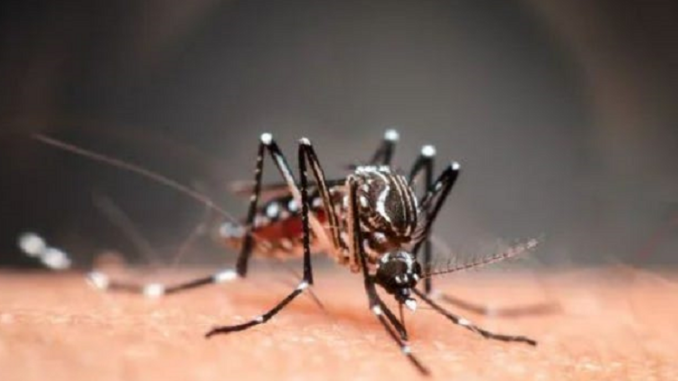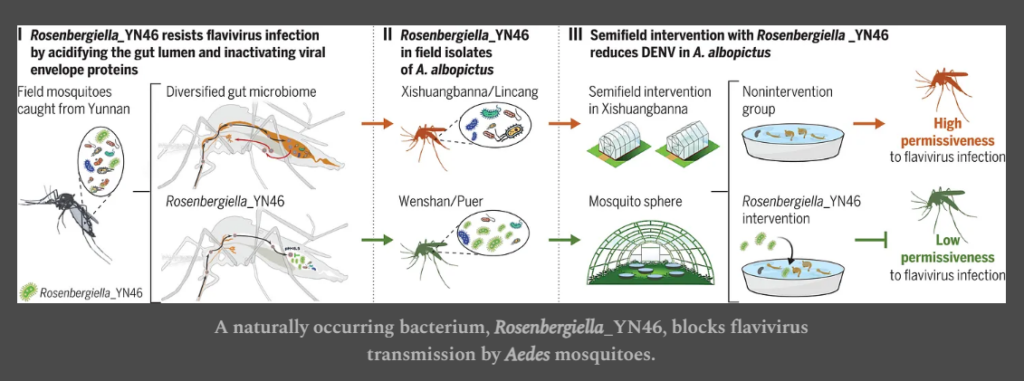
Chinese study discovers bacteria that fights Dengue and Zika in mosquitoes – resident mosquito gut bacteria disarms viruses and stops the spread of diseases
Researchers from the Tsinghua University-Peking University Joint Center for Life Sciences in Beijing have discovered a bacterium that live in the gut of some mosquitoes and secrete an enzyme that rapidly acidifies the insect’s gut making it so inhospitable that dengue, Zika, and other disease-causing virus cannot survive in the insect vector.
The scientists got their inspiration from mosquitoes in Yunnan Province, China which is known for having diseases spread by mosquitoes. The scientists observed that in different areas of Yunnan Province where the climate and number of mosquitoes are similar, the outbreaks of dengue fever are different.
They investigated whether the gut bacteria were different in mosquitoes from different places. Field sampling showed that the bacteria in the gut of mosquitoes are in fact influenced by the environment they live in. Some of the bacteria come from the water where mosquitoes breed, and some come from the sap of plants or the sweet liquid in flowers.
One of the bacteria they found, Rosenbergiella_YN46 was common in the guts of mosquitoes in Wenshan and Pu’er but not so much in other areas of Yunnan Province. The scientists than experimentally put this bacterium into the guts of other mosquitoe species that can spread diseases. The mosquitoes that had Rosenbergiella_YN46 introduced into their guts were much less likely to get infected with diseases like dengue or Zika. Rosenbergiella_YN46 produces an enzyme called RyGDH.

Viruses like dengue are sensitive to acidic conditions (pH less than 6.5) in the mosquito’s gut. When this happens the outer coating of the virus (called the envelope protein) completely changes its structure, permanently disabling its function. With its envelope protein broken, the virus particle is left powerless and unable to infect anything. This acidic defense system in the mosquito’s gut ends up significantly reducing the mosquito’s susceptibility to the virus.
These findings, published in the journal Science, suggest that Rosenbergiella_YN46 could be a potential bio-control agent for reducing flavivirus transmission and prevalence. By introducing the bacterium into mosquito populations in dengue-endemic areas, scientists hope to reduce the spread of these dangerous diseases. This approach could offer a safer and more environmentally friendly alternative to traditional mosquito control methods, such as chemical insecticides.
Sources:
- Science Express, Apr 21, 2024. https://chinaacademy.substack.com/p/a-clean-sweep-gut-bacteria-disinfect
- Science, Apr 19, 2024, Vol 384, Issue 6693. www.science.org/doi/10.1126/science.adn9524